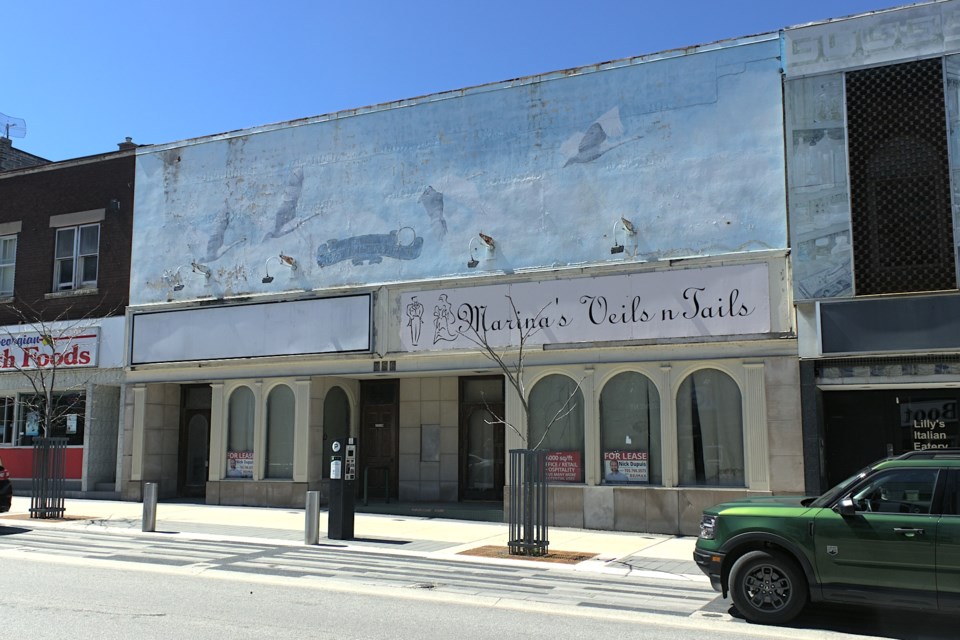It turns out, much to Midland council’s dismay, that the province likes to encourage commercial building owners to fix their vacant buildings rather than penalize them if left abandoned.
At the heart of the matter is a commercial building in Midland’s downtown core that has been vacant for over three decades. Last May, council directed town staff to explore implementation of a vacant building tax/fee on vacant commercial storefront buildings facing King Street in the downtown.
The item was described by Mayor Bill Gordon as a “bit of a letdown bummer report, but it makes perfect sense." According to the report, staff and the county’s tax consultant looked at the appropriateness of implementing such a tax.
“The long and short of it is that type of tax would violate the Municipal Act,” explained CFO Lindsay Barron, “(which is) our governing body for 443 of the 44 municipalities within Ontario, and currently that is not a provision of the Act.
“Typically we’ll see commercial properties of that nature are given tax rebates instead of additional tax when those vacancies occur, as more of an incentive program to try to revitalize the downtown area,” Barron added.
Coun. Bill Meridis, a downtown landlord with family connections to storefronts as well as being the council representative for the Downtown Midland Business Improvement Area, noted that he had introduced the motion but hadn’t asked to be connected to paying for such building owners to have their properties repaired through the resident tax base.
“In particular, there’s at least one that’s been vacant for 30-plus years,” said Meridis, adding he didn’t know why it was that way. “In my eyes, that is the responsibility of the building owner; to make our downtown thrive we don’t want to see buildings left vacant for 30 years.
“By no means would I support an incentive for building owners to fix up their buildings. They’ve bought their investment, and they should take care of their investment.”
Meridis pointed out that the Downtown BIA provides an incentive paid for by building owners and not the tax base, that will contribute $5,000 for a business in their membership to fix up their storefront.
Gordon praised Meridis for his comments and supported the move to keep any renovations off the shoulders of the Midland taxpayer.
“We’ll find other ways, and one of the tandem ways we spoke about,” said Gordon, “is beefing up our property standards bylaws. Especially as it comes to vacant buildings left to decay with nasty old mouldy paper in the window – just making the place all look like a ghost town.
“That’s coming in a rewrite of our property standards and how that will be enforced,” Gordon added. “That may help to some degree, although it doesn’t help to occupy the building – at least it won’t look like the scene of a horror movie.”
The commercial vacancy tax report is available in the council agenda on the town of Midland website.
Council meetings are held every third Wednesday, and can be viewed on Rogers TV cable channel 53 when available, or through the livestream on the Rogers TV website. Archives of council meetings are available through Rogers TV and on the Town of Midland’s YouTube channel.



